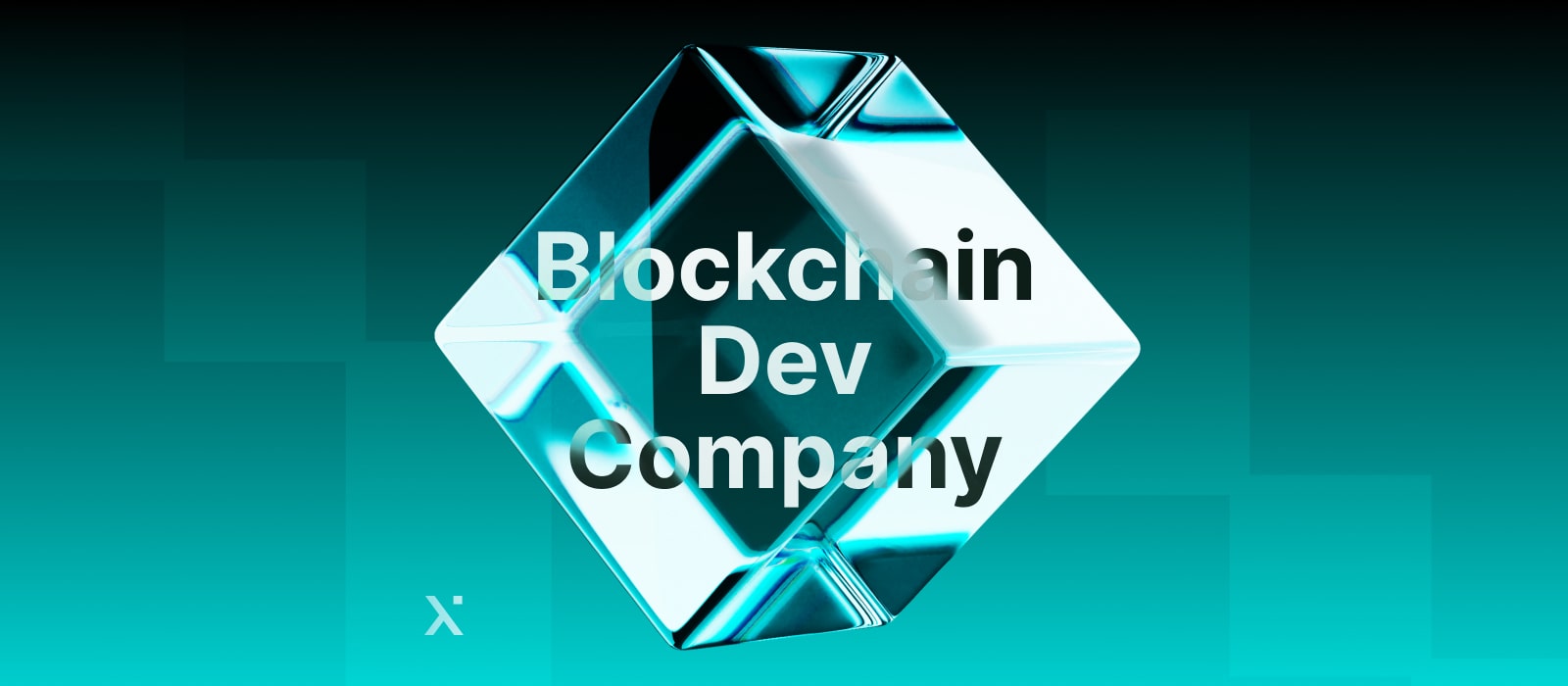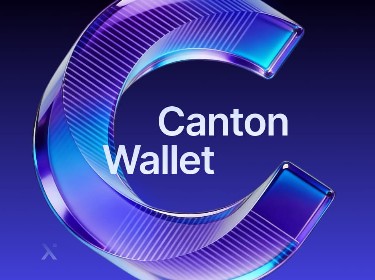As businesses race to launch secure smart contracts, decentralized apps, tokenized ecosystems, or private ledgers, one decision will make or break the entire initiative: choosing the right blockchain development company.
This isn’t just about writing code — it’s about finding a partner who understands your business goals, anticipates technical roadblocks, and builds future-proof solutions that scale securely and reliably.
And that’s where many businesses go wrong.
Too often, decision-makers rush into partnerships with firms that lack domain-specific expertise, deliver subpar code, or fail to provide strategic guidance beyond basic development. This results in missed deadlines, escalating costs, compromised security, and solutions that can’t scale.
This guide exists to help you avoid that.
In this comprehensive article, we’ll walk you through everything you need to know about how to choose the right blockchain development company: what to look for, what to avoid, how to compare vendors, and where to find the most trustworthy options. We’ll break down key selection criteria like technical capabilities, pricing models, security standards, and transparency, while also revealing common red flags that signal potential risk.
Whether you’re building the next DeFi unicorn, a supply chain transparency platform, or simply exploring enterprise blockchain development, this guide will give you the clarity and confidence to move forward with the right partner by your side.
Why the right blockchain development company matters
In blockchain, flawless execution separates success from obscurity. Even the most well-funded and visionary projects can crumble if the infrastructure is unstable, smart contracts aren’t airtight, or the solution isn’t architected for long-term scalability. No matter your use case — be it DeFi, digital identity, or enterprise automation — your blockchain development partner plays a far more critical role than simply writing code. They’re your technical strategist, risk mitigator, and a key driver of product-market fit. From logistics giants to fintech disruptors, many companies using blockchain technology seek partners who can translate technical complexity into business value at scale.
The blockchain ecosystem moves fast. Protocols evolve, security threats shift, user expectations rise. Working with the wrong team exposes you not only to technical debt – you’re putting your reputation, funding, and roadmap at stake. We’ve seen it happen: broken tokenomics models, often the result of skipping a proper altcoin development service, due to poorly audited contracts or enterprise platforms that miss compliance marks and get shelved.
Conversely, a competent blockchain development company becomes a long-term partner, helping you architect for scalability, choose the proper chain for your goals, navigate audits, and ship confidently. They don’t just build what you ask for — they challenge assumptions, optimize for performance, and ensure your product is designed to stand up in a competitive, regulation-aware Web3 market, especially for security-critical products like Web3 wallet development , Web3 marketplace development or Web3 application development.
In short, the right blockchain development partner is the difference between delivering a high-impact solution and becoming another failed GitHub repo.
![]()
Critical risks of partnering with wrong blockchain development companies
Choosing the wrong partner is a high-stakes liability. In an industry where immutability is both a strength and a risk, there’s no margin for sloppy execution, shallow expertise, or poor communication. One weak link in the development process can undermine your entire product, expose users to financial loss, or land your company in legal hot water.
Here are the most critical risks that come with partnering with the wrong blockchain development company:
Poor smart contract execution = financial vulnerabilities
Smart contracts are the engine of blockchain functionality, and there’s no undo button if something goes wrong. A single logic flaw or unchecked edge case can create irreversible vulnerabilities. From DeFi protocols to NFT marketplaces, countless platforms have been exploited due to poorly written or unaudited contracts, resulting in millions of dollars in losses. A subpar development team may skip proper testing, ignore security best practices, or lack audit readiness, exposing your product from day one.
Hidden costs, budget overruns, and misaligned architecture
Many companies promise low-cost development but fail to clarify the fine print. You end up with increasing costs caused by scope creep, rushed MVPs that require complete rewrites, or infrastructure choices that don’t support scaling. Worse, a team with limited blockchain architecture experience may choose the wrong protocol, store data inefficiently, or neglect off-chain integration, forcing expensive rework down the line.
Regulatory compliance failures
As governments catch up to Web3 innovation, compliance is no longer optional. Whether you’re working in fintech, gaming, healthcare, or real estate, failing to meet data privacy, KYC/AML, or jurisdiction-specific rules can stall product launches or invite penalties. A weak development partner might not be aware of evolving legal requirements or, worse, build without future-proofing compliance, putting your business at long-term risk.
![]()
Reputational and legal fallout
In blockchain, trust is everything. A flawed product’s launch, exploits, or downtime incidents can quickly erode user confidence and investor support. Even worse, legal disputes can arise from unclear intellectual property agreements, token mismanagement, or mishandled user data. Your brand takes the hit when your tech partner disappears during a crisis or can’t explain their decisions.
Working with the wrong blockchain development company doesn’t just slow you down but derail your project entirely. From financial loss to regulatory blowback, no serious founder or enterprise can afford to ignore these risks.
Blockchain Application Development Full Guide
Advantages of Blockchain For Startups
Key criteria for selecting the best blockchain development company
Hiring a blockchain development company is more than just outsourcing code — it’s a strategic partnership that shapes your product’s future. The right partner will align with your goals, challenge your assumptions, and help you ship faster and smarter. Below are the 10 most critical criteria to guide your evaluation and ensure you’re choosing a blockchain company that delivers lasting value.
1. Domain-relevant experience
Ask whether a company has real-world experience in public blockchain app development, not just private or enterprise chains, as this determines its ability to work with permissionless networks and decentralized applications.
You want a team with proven experience in your niche, whether DeFi, real estate tokenization, identity systems, gaming, or blockchain for startups, and a track record of delivering web3 development services across real-world use cases. Ask for live project links, client testimonials, and post-deployment results. A company that understands your domain will better anticipate industry-specific risks, compliance issues, and user behavior patterns than a generic software firm.
2. Tech stack mastery and protocol agnosticism
One-size-fits-all doesn’t apply in blockchain. You need a fluent team across multiple ecosystems — Ethereum, Polygon, Solana, BNB Chain, Hyperledger, Cosmos, and more — who can justify their tech choices with data, not bias. If your product relies on NFTs or large-scale consumer apps, that may mean choosing a partner that offers a dedicated Flow blockchain development service rather than forcing everything onto a generic stack.
You’ll also want to assess their dApp development company capabilities for blockchain integration: can they connect your dApp to external APIs, databases, or ERP platforms? Can they implement oracles, bridges, or cross-chain protocols when needed?
3. Specialized, cross-functional team
Blockchain projects require diverse expertise — not just competent contract developers. You’ll need blockchain architects, backend engineers, DevOps, UI/UX designers, security experts, QA testers, and a project manager who can coordinate everything.
If you’re launching a complex, compliance-sensitive platform, make sure your team includes experts in enterprise blockchain development, governance models, and cloud-native infrastructure.
4. Clear, consistent communication
Look for a partner who treats communication like a deliverable. The best teams are transparent, proactive, and structured in handling updates, blockers, and feedback loops.
Ask which tools they use (e.g., Jira, Notion, GitHub Projects, Slack) and how they structure reporting (e.g., weekly demos, sprint retros, backlog grooming). Miscommunication often signals deeper project management problems that will surface mid-project.
5. Transparent pricing and contracts
Avoid vague estimates or “flexible” rates. A reputable blockchain company should clearly outline what’s included, what’s optional, and what could trigger additional costs.
Evaluate their engagement model — fixed-price vs. time & materials — and how they handle scope creep. Ask for sample contracts, milestone breakdowns, and whether post-launch support is included or billed separately.
6. Security-first development culture
Security is not a feature — it’s the foundation. With exploits regularly draining millions from poorly written contracts, your partner should treat secure code, audit readiness, and threat modeling as table stakes.
Ask potential partners about their smart contract development services, including audit readiness, formal verification, and secure deployment processes, to ensure vulnerabilities are caught before production. For private blockchain development, ensure they can implement permissions, encryption, and identity layers.
7. Scalability and infrastructure readiness
The best blockchain solutions are designed with scale in mind. Your partner should be able to build modular systems that support future growth, whether adding L2s, integrating external services, or preparing for a larger user base.
Look for teams experienced with horizontal scaling, node orchestration, performance benchmarking, and cost-efficient infrastructure design.
8. Regulatory & compliance awareness
Regulatory compliance is a make-or-break factor as blockchain matures, especially in fintech, gaming, healthcare, or real estate. Your partner should know about data privacy laws (e.g., GDPR, HIPAA), financial regulations (e.g., KYC/AML), and smart contract legal implications.
They should also understand how blockchain fits into regulated environments, offering solutions like selective transparency, hybrid chains, or data masking where needed.
9. Post-launch support and maintenance
Your blockchain product’s life doesn’t end at launch. Ongoing success depends on timely updates, chain upgrades, bug fixes, performance monitoring, and scaling strategies.
Ask about their long-term support models, how they handle incidents or critical bugs, and whether they provide 24/7 support for enterprise clients.
10. Strategic vision and consulting mindset
The best blockchain software development companies do more than follow your roadmap — they challenge it, refine your product, and help you anticipate future opportunities or blockers.
Whether you’re a startup building a new protocol or a corporation integrating blockchain into your core business, your partner should offer product strategy, tokenomics consulting, and emerging trend analysis.
Vendor evaluation guide
Use this table as a quick-reference guide when comparing vendors. You might evaluate several potential partners or assess a single company against your internal benchmarks. Either way, these points will keep you focused on what truly matters.
| Evaluation area | What to look for | Why it matters |
| Relevant industry experience | Portfolio of similar use cases, proven success in your vertical | Ensures they understand the nuances of your business and blockchain goals |
| Technology stack expertise | Multi-chain support, protocol-agnostic, strong blockchain integration services | Enables performance, flexibility, and long-term scalability |
| Team composition | Dedicated blockchain architects, devs, DevOps, QA, and PMs | Guarantees end-to-end execution and accountability |
| Communication and collaboration | Use of agile tools (Jira, GitHub, Slack), regular updates, and proactive problem-solving | Prevents delays, confusion, and scope misalignment |
| Pricing transparency | Detailed estimates, milestone billing, and clear T&M or fixed models | Avoids scope creep and budget blowouts |
| Security practices | Secure coding standards, audit-ready smart contracts, and risk mitigation | Protects users, assets, and brand reputation |
| Scalability mindset | Modular system design, performance testing, future-ready architecture | Ensures platform growth doesn’t require a complete rebuild |
| Compliance awareness | Familiarity with KYC/AML, GDPR, and jurisdiction-specific rules | Helps you avoid fines, launch delays, or investor rejection |
| Post-launch support | Maintenance packages, upgrade pathways, 24/7 monitoring (if needed) | Extends product longevity and platform resilience |
| Strategic thinking | Product consulting, tokenomics input, growth roadmap planning | Aligns technical work with business value and long-term vision |
The blockchain space is competitive, fast-moving, and high-stakes. You’re not just hiring a technical service provider — you’re choosing a partner who will directly impact your product’s security, scalability, user adoption, and long-term ROI.
This framework helps you move beyond surface-level promises and focus on what drives real-world success. From launching a brand-new platform to expanding an existing solution, choosing the right blockchain development company empowers you to build confidently, avoid costly missteps, and stay ahead of the curve.
Red flags to watch out for when choosing a blockchain development company
The cost of choosing the wrong development partner can be steep in a space as fast-evolving and capital-intensive as blockchain. With hundreds of firms claiming blockchain expertise, it’s easy to fall for polished websites and buzzword-heavy proposals. But many vendors lack the depth, discipline, or technical infrastructure behind the scenes to deliver production-grade blockchain solutions.
To help you identify early warning signs, we’ve compiled a list of common red flags that often indicate unreliable or inexperienced providers. If a potential partner checks even one of these boxes, it’s time to take a closer look — or walk away.
No real-world use cases or verified portfolio
A lack of deployed projects is a major concern. If a company can’t provide case studies, links to live products, or client testimonials, it’s a sign they may be experimenting on your dime—or worse, exaggerating their experience.
Vague cost structure or “too good to be true” pricing
Transparent pricing is a hallmark of experienced vendors. If estimates seem unusually low, unclear, or filled with hidden variables, expect budget creep and limited accountability later on.
No security protocols or tokenomics expertise
Security can’t be an afterthought. If the team doesn’t discuss secure coding practices, smart contract audits, or tokenomics mechanics, they will likely miss critical knowledge protecting your users and capital.
One-size-fits-all tech stack
Every blockchain use case is different. A firm that insists on using the same protocol or infrastructure for every project likely lacks the strategic depth to adapt to your needs. Avoid teams that push a single chain regardless of context.
Poor communication or delayed responses
Communication breakdowns early on often signal disorganization, lack of project management, or limited commitment. If they take days to reply, miss calls, or provide vague updates, expect delays and confusion down the line.
No team transparency
If you can’t meet the team, see developer profiles, or understand who’s doing what, that’s a problem. Some agencies outsource heavily or rely on freelancers without disclosing it, leading to inconsistency and accountability gaps.
Lack of agile development process
No clear delivery model, no sprints, no retros — no structure. Without Agile or a similar process, you’ll face missed deadlines, limited visibility, and low-quality output.
Overuse of buzzwords without substance
If a proposal is packed with blockchain jargon but light on specific deliverables, architecture rationale, or technical decisions, the team may be trying to mask inexperience with hype.
No testing, QA, or audit readiness
Blockchain code is immutable — untested contracts or apps can lead to irreversible losses. If the company doesn’t mention QA, staging environments, testnets, or third-party audit readiness, proceed with caution.
No post-launch support or handoff plan
Blockchain solutions aren’t set-and-forget. A company that doesn’t offer ongoing support, update mechanisms, or clear documentation is not setting you up for long-term success.
Use the table below as a vetting cheat sheet during early calls or proposal reviews. These signals often reveal which teams are capable and which might leave you with broken code and a blown budget.
| Red flag | What it looks like | Why it’s a problem |
| No proven portfolio | No case studies, testimonials, or live links | Indicates a lack of real-world delivery experience |
| Vague or unrealistically low pricing | No clarity on milestones, hidden fees, or loose scope | Leads to budget overruns and scope creep |
| No security or tokenomics focus | No audits, testing plans, or economic logic | Leaves your product open to exploits and failure |
| Pushes one chain or toolset | Recommends the same protocol for every project | Shows inflexibility and a lack of strategic thinking |
| Poor communication | Slow replies, missed calls, unclear updates | Creates delivery delays and confusion |
| No access to the dev team | Won’t share team structure or developer profiles | Obscures responsibilities and team competency |
| No defined development process | No roadmap, no sprints, no version control | Risks chaos during execution |
| Overuse of buzzwords | Lots of hype, but no architecture or timeline clarity | May indicate lack of technical depth or strategic clarity |
| No QA or audit preparation | No mention of testing, bug tracking, or formal reviews | Exposes users and assets to serious risk |
| No long-term support | No upgrade, maintenance, or scaling roadmap | Leaves your platform stagnant or vulnerable post-launch |
No vendor is perfect, but a reliable blockchain development company should be able to clearly explain its process, show proof of delivery, and demonstrate security and strategy awareness. If a team can’t check those boxes or makes you feel like you’re asking too many questions, they’re probably not the right fit.
Do you want to know how much the cypto gateway development costs? Read this article
Where to find and vet a blockchain development partner
![]()
Once you know what to look for (and what to avoid), the next challenge is finding blockchain companies that check all the right boxes. Fortunately, several trusted platforms and research tactics can help you uncover the best vendors, verify their capabilities, and assess how well they align with your needs.
Here’s a breakdown of the most effective places to discover and vet blockchain development teams in 2025.
Clutch: verified B2B marketplace with client reviews
Clutch remains one of the most reliable sources for discovering top blockchain technology companies. It offers:
- Verified reviews from real clients
- Filterable lists based on hourly rates, team size, industry focus, and location
- Insights into project types, tech stacks, and average budgets
Look for companies with multiple 5-star reviews and clear examples of solutions. Be cautious of vendors with vague feedback or a suspicious number of generic reviews.
LinkedIn: real-time team and thought leadership check
LinkedIn is invaluable for assessing the people behind the brand. Use it to:
- Review the company’s leadership and core team
- See who’s posting thought leadership or technical insights
- Validate employment claims (Are those developers really in-house?)
- Check connections, endorsements, and relevant community engagement
A company that invests in education and visibility on LinkedIn often takes long-term reputation seriously.
GitHub: technical proof and code quality
For companies with open-source projects or protocol contributions, GitHub is a goldmine. Use it to:
- Check how actively they maintain codebases
- Review code quality, documentation, and test coverage
- See contributor activity and team collaboration
- Verify that they’ve worked on similar architectures or protocols
Conferences, hackathons, and blockchain events
Leading blockchain events like Consensus, ETHGlobal, Web3 Summit, and Permissionless are not just learning opportunities but talent scouting grounds. Many companies present projects, host workshops, or compete in hackathons.
Watch for:
- Teams that win awards or sponsor technical talks
- Projects that go from concept to MVP within these ecosystems
- Speaking engagements that show expertise
Content and community signals
Strong companies usually publish content that reflects their real-world expertise. Look for:
- Technical blogs or case studies
- Open knowledge-sharing (e.g., YouTube explainers, whitepapers, DevRel articles)
- Participation in Stack Overflow, Reddit, or Web3 Discord communities
Quality content helps you assess how well a team understands the stack, educates clients, and adapts to new trends.
Bonus tip
Before scheduling a discovery call, create a short vetting checklist based on the criteria from the previous section. Evaluate each vendor’s public presence against that list. If they fall short on three or more key points, you’ll likely save yourself hours of wasted meetings.
Top blockchain development companies
Choosing the right blockchain development partner can make or break your project, but finding reliable vendors in a crowded market is challenging. With hundreds of firms claiming blockchain expertise, how do you separate marketing hype from proven delivery?
To help you cut through the noise, we’ve curated a comparison of the top 10 blockchain development companies in 2025. This list is based on publicly available data, client reviews, project portfolios, service offerings, pricing, and industry reputation.
Top blockchain companies by quality and price
| Company | Clutch rating | Minimum project size | Hourly rate | Team size | Key focus areas | Location HQ |
| PixelPlex | 4.9 | $25,000+ | $50 – $99 / hr | 130+ | Blockchain, AI, data analytics and visualization, custom software development | United States |
| Tech Alchemy | 4.9 | $25,000+ | $25 – $49 / hr | 250+ | Blockchain, design, web development, IT consulting | United Kingdom |
| Crypton Studio | 5.0 | $10,000+ | $50 – $99 / hr | 70+ | Blockchain, custom software development, cybersecurity | Latvia |
| Labrys | 4.8 | $10,000+ | $100 – $149 / hr | 40+ | Custom software development, blockchain, design | Australia |
| OmiSoft | 5.0 | $5,000+ | $25 – $49 / hr | 110+ | Blockchain, AI, custom software development | Estonia |
| SpaceDev | 5.0 | $25,000+ | $50 – $99 / hr | 70+ | Staff augmentation, blockchain, web and mobile development | United States |
| Systango | 4.7 | $10,000+ | $25 – $49 / hr | 350+ | Blockchain, cloud development, data engineering | United Kingdom |
| Cubix | 4.7 | $25,000+ | $25 – $49 / hr | 200+ | Blockchain, game development, mobile development | United States |
| CGS-team | 5.0 | $10,000+ | $25 – $49 / hr | 100+ | Blockchain, AI, custom software development | Cyprus |
| Linum Labs | 4.7 | $10,000+ | $50 – $99 / hr | 20+ | Staff augmentation, blockchain, AI | Switzerland |
Why PixelPlex leads the market
![]()
PixelPlex stands out as a trusted, innovation-driven partner for emerging startups and global enterprises in a saturated blockchain development landscape. PixelPlex provides, among others, Polygon blockchain development services. While many vendors offer code delivery, few combine technical mastery, product strategy, and industry-specific experience at the scale and consistency that PixelPlex does. Here’s what sets us apart:
Proven blockchain services
PixelPlex isn’t just a development shop — we’re a strategic blockchain partner. From idea validation to protocol design, tokenomics modeling, and compliance roadmapping, we guide clients through the full lifecycle of blockchain product development. This includes specialized tracks like P2P crypto exchange development, where we architect secure, non-custodial trading platforms with robust escrow and matching systems. Our consulting-first approach ensures your solution is viable, scalable, and aligned with long-term business goals before a single line of code is written.
Numerous successful projects across diverse industries
Our portfolio spans DeFi platforms, NFT marketplaces, decentralized identity systems, real estate tokenization engines, and enterprise blockchain development for supply chains, energy, and healthcare. Every project proves our ability to execute across tech stacks, regulatory landscapes, and user expectations.
Dual expertise in enterprise and startup ecosystems
PixelPlex supports both enterprises and early-stage innovators. We understand how to build lean, fast-moving MVPs for blockchain startups while delivering scalable, compliance-ready solutions for large organizations with complex infrastructures. This dual lens helps us provide tailored strategies, whether you’re optimizing for time-to-market or long-term governance. With our expertise in MVP software development, we ensure your product is built efficiently, validated quickly, and positioned for scalable growth.
Full-spectrum web3 and private blockchain expertise
From public chains (e.g., Ethereum, Solana) and private frameworks (e.g., Hyperledger, Quorum), our engineers bring deep fluency across L1s, L2s, and cross-chain ecosystems. We’ve built tokenomics models, staking protocols, NFT issuance frameworks, DAO infrastructure, and modular dApps that adapt to shifting market conditions.
In-house R&D and custom blockchain tooling
Innovation is in our DNA. Our internal R&D lab continuously builds custom development tools, audit automation frameworks, smart contract libraries, and devOps pipelines that give our clients a time-to-market advantage. We’re not just using blockchain but expanding what’s possible with it.
From startups to enterprises
Whether you’re an early-stage founder launching a Web3 app or an enterprise architect integrating blockchain into legacy systems, PixelPlex offers the tools, people, and processes to move fast and scale confidently. We build future-proof solutions designed to evolve with your product, market, and blockchain ecosystem.
Flutter App Development Cost Explained
Why Fashion Is Being Woven with Blockchain
How Canton.Network Solves DeFi's Biggest Risks
Cost of blockchain development: what to expect
![]()
When building a blockchain-based product, cost transparency is critical but also elusive. Many development firms offer ballpark figures without context, leaving founders and stakeholders unprepared for scope changes, missed deadlines, or post-launch expenses. Blockchain development costs can vary significantly depending on the project type, tech complexity, required features, team location, and long-term scalability needs.
This section breaks down the key pricing tiers, outlines what different types of projects typically cost, and compares rates across geographic regions to help you budget strategically.
Breakdown of pricing tiers
Blockchain development projects generally fall into three pricing categories based on complexity, team composition, and time-to-market needs:
| Tier | Typical budget range | What it covers |
| Basic (MVP) | $30,000 – $100,000 | Smart contract deployment, basic UI, limited features, testnet deployment |
| Mid-level | $100,000 – $250,000 | Full dApp with custom smart contracts, web/mobile frontend, tokenomics, QA testing |
| Enterprise | $250,000 – $750,000+ | Scalable architecture, cross-chain logic, integrations, audits, post-launch support |
Each tier reflects a different level of architectural depth, regulatory planning, and UI/UX polish. For example, an MVP for a startup project may require only a single developer team over 2–3 months, while an enterprise platform with compliance layers and multi-user roles could span 6–12 months with a cross-functional team.
Conclusion
Choosing the right blockchain development company is one of the most important decisions you’ll make on your Web3 journey. It directly affects your product’s security, scalability, compliance, and market success. With the right partner, you’re not just getting code — you’re getting a strategic advantage, a faster time to market, and long-term support.
From startups building MVPs to enterprises launching multi-layered platforms, the demand for high-quality blockchain application development is only growing. But with that growth comes noise. This guide’s criteria, red flags, sourcing tips, and company comparisons will equip you to make a well-informed, high-impact decision.
Still evaluating your next move? Before committing to full-scale development, consider starting with our blockchain consulting services to validate your idea, scope out your infrastructure needs, and identify the best technology stack.
FAQ
Use NDAs, ensure ownership clauses are in your contract, and work with companies that respect IP rights.
Consultants can validate your architecture, catch security risks, and offer strategic insights your internal team may miss.
Agencies provide speed, experience, and diverse skill sets — ideal for companies without internal blockchain expertise.
Milestones usually include discovery & consulting, architecture planning, UI/UX design, smart contract development, QA/testing, audit prep, mainnet deployment, and post-launch support.
Good vendors provide complete visibility into each sprint, offer demo reviews, and include you in milestone sign-offs. Avoid firms that provide little transparency or collaboration.
Yes, this is where blockchain integration services come in. Ask about compatibility with API connectors, middleware, oracles, and legacy systems.
Look for companies with a proven track record in building secure, scalable, and compliant crypto-related solutions. If your project involves public-facing or financial components, it’s also important to assess their familiarity with DeFi, tokenomics design, and regulatory frameworks such as KYC/AML.
Not necessarily better, but they often offer specific advantages. Such companies provide a strong understanding of U.S.-based compliance, enterprise software integration, and corporate governance standards. This can be especially valuable for projects requiring regulatory clarity, institutional trust, or large-scale deployment across corporate environments. However, many global firms outside the United States also deliver exceptional quality and innovation, often at a more competitive cost.




